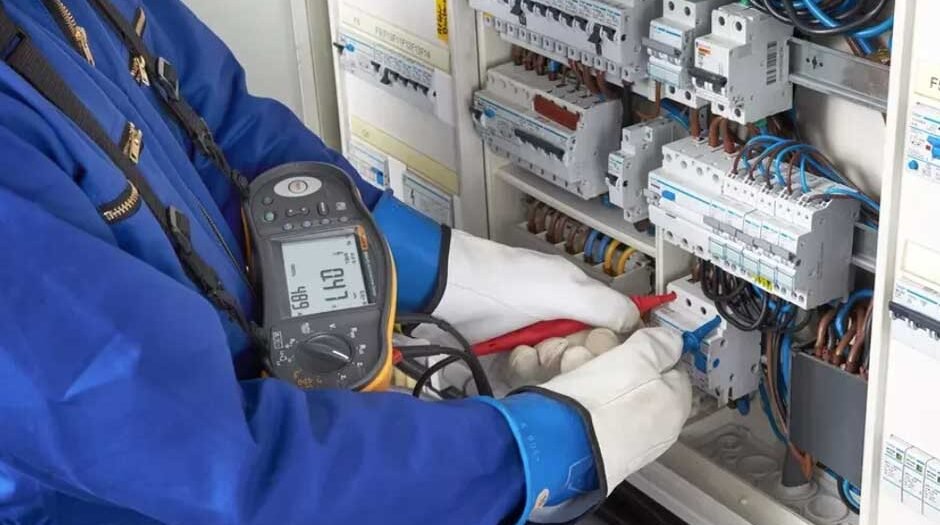Commercial properties require robust and reliable electrical systems to ensure the smooth operation of businesses. Whether it’s a retail store, office building, or industrial facility, proper electrical installation is essential for both functionality and safety. In this guide, we’ll take a closer look at the importance of commercial electrical installation, the types of services involved, and how to choose the right contractor for your project.
What is Commercial Electrical Installation?
Commercial electrical installation refers to the process of designing, installing, and maintaining electrical systems in commercial buildings. These installations differ from residential projects in terms of scale, complexity, and regulatory requirements. A successful commercial electrical installation not only powers a business but ensures compliance with local codes and safety standards.
The scope of commercial electrical installation can vary greatly, from setting up lighting and power outlets to integrating advanced electrical systems such as security, HVAC, and data networks. It requires skilled professionals who understand the specific needs of commercial environments.
The Importance of Proper Commercial Electrical Installation
A well-executed commercial electrical installation is vital for several reasons:
- Ensures Safety: Commercial properties have higher electrical demands than homes, which increases the risk of electrical hazards if not properly installed. A professional installation ensures that all components are safely connected, reducing the likelihood of electrical fires, shocks, or system failures.
- Supports Business Operations: Reliable electricity is the backbone of modern business. From powering computers and machinery to running lighting and security systems, a dependable electrical installation supports uninterrupted operations.
- Compliance with Regulations: Commercial buildings are subject to strict electrical codes and regulations. A professional electrician ensures that your installation meets all legal requirements, helping you avoid fines and potential liability issues.
- Energy Efficiency: Many commercial electrical installations include energy-saving solutions such as LED lighting, smart systems, and efficient wiring. These upgrades can help reduce energy consumption and lower utility costs over time.
- Scalability and Future-Proofing: As businesses grow, so do their electrical needs. A professionally installed electrical system is designed with scalability in mind, allowing for easy upgrades and expansions as your business evolves.
Key Services Involved in Commercial Electrical Installation
Commercial electrical installation is a broad field that encompasses a wide range of services tailored to meet the unique needs of businesses. Here are some of the most common services involved:
- Electrical Wiring: Wiring is the foundation of any electrical system. In commercial properties, this involves installing wiring for lighting, outlets, equipment, and any specialized systems your business requires.
- Lighting Installation: Commercial spaces often have diverse lighting needs, from energy-efficient LED lights to specialty lighting for retail displays or industrial tasks. Electricians ensure that lighting is installed correctly and in line with energy codes.
- Power Distribution: Commercial buildings often require complex power distribution systems to handle the electrical load of multiple floors, equipment, and departments. This includes the installation of panels, transformers, and circuits.
- HVAC and Electrical Integration: HVAC systems are integral to commercial buildings, and electricians are responsible for ensuring that these systems are properly powered and integrated with control systems.
- Security Systems: From access control and surveillance cameras to fire alarms, commercial electricians install and integrate advanced security systems that protect your property and employees.
- Data and Communication Systems: In today’s digital age, businesses rely on fast and reliable data networks. Electricians install the necessary wiring for computers, phones, and internet connectivity, ensuring that your business stays connected.
Choosing the Right Contractor for Commercial Electrical Installation
Given the complexity and importance of commercial electrical installations, selecting the right contractor is essential. Here are some tips to help you make the best choice:
- Check Licensing and Certifications: Ensure that the electrical contractor you hire is fully licensed and certified to perform commercial work in your area. This guarantees that they meet the required standards for safety and quality.
- Experience with Commercial Projects: Commercial electrical installations are far more complex than residential work, so it’s important to hire a contractor with specific experience in commercial projects. Look for a company that has successfully completed projects similar to yours.
- References and Reviews: Ask for references from previous clients and read online reviews to gauge the contractor’s reputation. Satisfied clients are a good indication of reliable, high-quality work.
- Ensure Knowledge of Regulations: Commercial electricians must be familiar with national, state, and local electrical codes. Make sure your contractor is knowledgeable about the regulations that apply to your project.
- Get a Detailed Quote: Commercial projects can be costly, so it’s essential to get a detailed quote upfront. Make sure the quote includes all aspects of the project, from labor and materials to permits and inspections.
Commercial electrical installation is a critical component of any successful business operation. It ensures that your property is safe, efficient, and compliant with regulations while providing the necessary power for day-to-day activities. Hiring a qualified and experienced commercial electrician is essential to getting the job done right. With the right contractor by your side, you can ensure that your electrical systems are designed to support your business now and in the future.






















































![490+ Funny Laptop Names [Cool & Op Ideas] 56 490+ Funny Laptop Names](https://namenestle.com/wp-content/uploads/2024/03/funny-laptop-names.webp)




